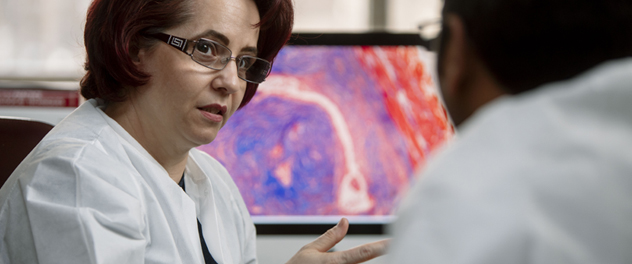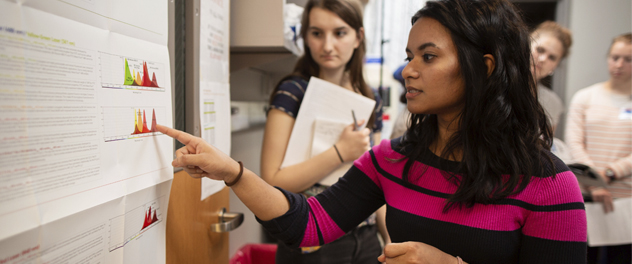-

Basic and translational immunology research drive discovery and understanding of immune system biology
Research in the Department of Immunology at Mayo Clinic advances knowledge of how the immune system works, and in doing so can advance development of novel tests and treatments for people with allergies, chronic inflammation, cancer and other immune-related diseases.
-

Basic and translational immunology research drive discovery and understanding of immune system biology
Research in the Department of Immunology at Mayo Clinic advances knowledge of how the immune system works, and in doing so can advance development of novel tests and treatments for people with allergies, chronic inflammation, cancer and other immune-related diseases.
-

Basic and translational immunology research drive discovery and understanding of immune system biology
Research in the Department of Immunology at Mayo Clinic advances knowledge of how the immune system works, and in doing so can advance development of novel tests and treatments for people with allergies, chronic inflammation, cancer and other immune-related diseases.
Research
The Department of Immunology nurtures a highly interactive approach to basic and translational science that creates knowledge and fosters discovery of new treatments and diagnostic tests for patients with disease-specific problems, such as:
- Allergy
- Autoimmune diseases
- Cancer
- Chronic inflammation
- Infections
- Tissue, organ and bone marrow transplantation
Departmental faculty also have oversight responsibilities for the Antibody Hybridoma Core and Immune Monitoring Core resources used by investigators across the institution.
Areas of research include:
- Adaptive immunity. Research into the mechanisms of B cell and T cell development, immune recognition through major histocompatibility complex (MHC) and human leukocyte antigen (HLA) molecules, and immune cell activation are central to several research projects across the department.
- Cancer immunology. Many researchers in the department are engaged in cancer immunology, cancer immunotherapy and cancer biology research. Many of these researchers belong to the David F. and Margaret T. Grohne Cancer Immunology and Immunotherapy Program in the Mayo Clinic Comprehensive Cancer Center.
- Immunometabolism. Several researchers in the department are focused on understanding how cellular metabolic pathways and the metabolites they generate impact immune cell development and effector function in health and disease.
- Innate immunity. Rapid responses to pathogens through the actions of macrophages, granulocytes, natural killer (NK) cells and other aspects of innate immunity are the focus of both established and newer faculty members' research programs.
- Transplant immunology. Clinicians conducting organ and bone marrow transplantation find research colleagues in the department eager to advance the science behind the practice.